We analyze advertisements to resolve legal disputes
We mostly see two types of advertisement disputes: those where a company sues an advertisement of a rival and others where the Customer Protection Board challenges an advertisement for the sake of the public. These cases rely on advertisement legislation which sets the framework that companies have to follow. For example, an advertisement must not intentionally put forward false information, propagate unlawful behaviour, constitute defamation of a competitor nor damage the health of the general public. In many cases the application of these criteria are disputable.
We assist lawyers, producers and consumers in advertisement disputes by providing a semiotic expert opinion. What are the components of a semiotic expert opinion? How is it done? And why should one pay for it? Semiotic expert opinions are built on the scientific theories of Charles Sanders Peirce and Ferdinand de Saussure and on the studies of experimental psyhology, culture studies and linguistics. Semiotic expert opinions can be used as supporting material in advertisement disputes.
We highlight some essential aspects of semiotic expert opinions below, followed by a list of some advantages for the client.
CONTENT
- Expert embarks with the question that is posed to him.
- Expert analyses the question and answers to it.
- The answer is based on the methods of semiotics and criteria stated in the product advertisement legislation.
PROCEDURE
- Two advertisements seem confusingly similar or the arguments of the Customer Protection Board seem to be ungrounded.
- Advertisement owner turns to their legal adviser or advertisement agency.
- Legal adviser or advertisement agency requests an expert opinion from a semiotician.
- Semiotician specializing in advertisement disputes compiles an expert opinion.
- Semiotician explains his findings to the legal adviser or advertisement agency.
- Expert opinion is given to the court of law, Consumer Protection Board or other dispute parties.
ADVANTAGES
- No surveys are needed. Semiotic analyses of advertisements are structural and context independent in the sense that they only consider features which are common to all sign users.
- One expert is enough. Semiotic sign models systematically gather various parameters in advertisement legislation into one analysis. A single semiotician specializing in advertisement disputes can write the entire expert opinion.
- Reverse engineering. As semiotics is used for product advertisement creation, semiotics is also well suited to analyze ads.
Our team consists of renowned experts, who are competent and experienced in the field of semiotic analyses of advertisements.

